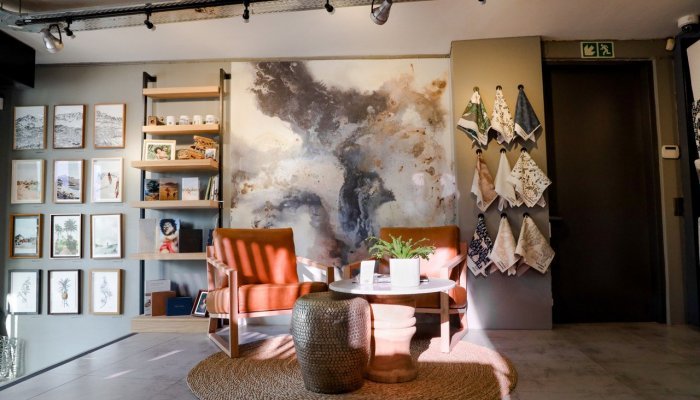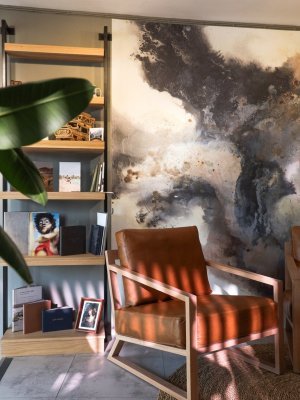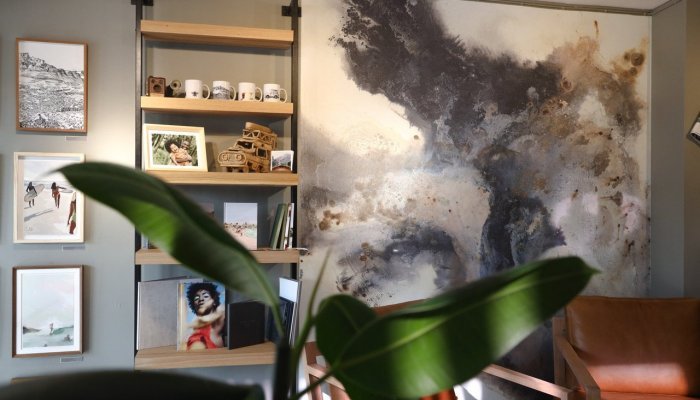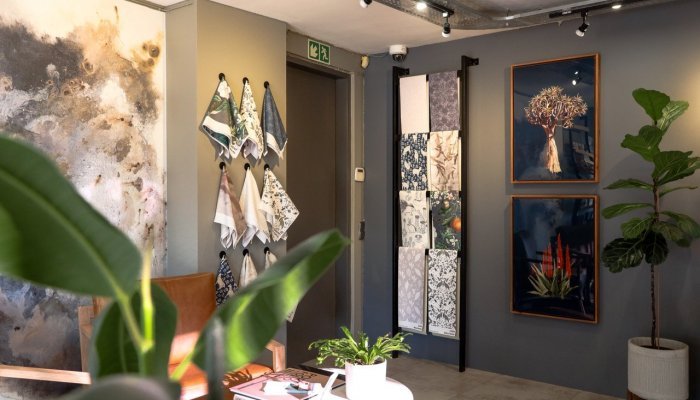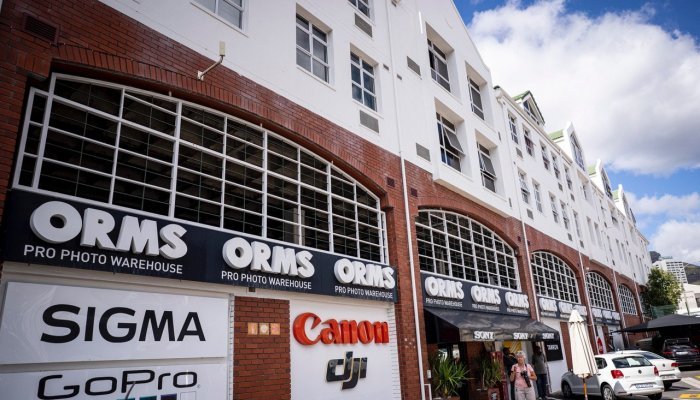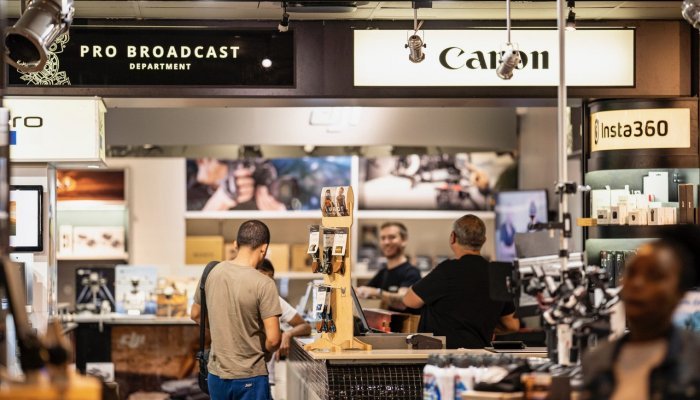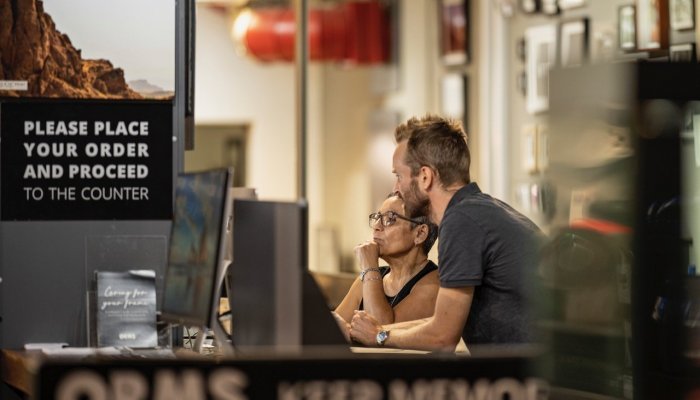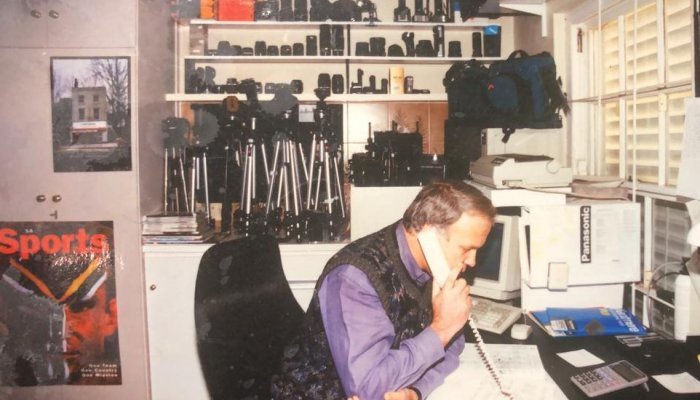Ask any South African photographer where they buy their camera gear, and most will answer ‘Orms’. This state-of-the-art imaging retailer now rates as Africa’s leading camera equipment hub – both online and in Johannesburg and Cape Town – and is testimony to the vision of one man, Mike Ormrod.
Bond Street, London (circa 1977): Focus and zoom in … A young man walks along a red carpet and enters through the hallowed doors of Wallace Heaton, at the time rated one of the UK’s premier photographic retailers. This was certainly not just any shop and – with a royal warrant – it was officially sanctioned to do business with the British royal family.
We are, however, not travelling back in time for an audience with Her Majesty, but rather to meet with and chat to Mike Ormrod. He was the young man who entered these premises, and at the time found himself in the UK on an annual sabbatical...
“I can’t believe that was 45 years ago,” says Ormrod, smiling contemplatively. “I had left Cape Town after working with my brother Chris, who had just established the successful Photo Time photography business, covering events and weddings as well as the occasional bit of commercial imaging.”
Chris had long been a photographer Mike looked up to and, as the older brother, he always kept a watchful eye while Mike made pocket money, often trawling the Cape’s upmarket restaurant scene to shoot portraits of couples out on the town. Life was good back then, to the extent that Mike bought himself a car (a second-hand Ford Prefect) while still at school.
The wider world was calling, though, and Mike invested in his future (and a ticket to the UK). “That year in London taught me a lot about life and business,” Ormrod continues. “I worked with one specific older salesman – a Mr. Wagner – and his dedication to service was always impeccable. This is a takeaway that stuck with me when I returned to Cape Town in 1992.”
This is when Mike hit the motor-drive button on his personal commercial imaging journey. Two years in and he had already opened the successful Develop/Print agency with brother Chris, when opportunity knocked once again.
Ormrod’s passion was noticed by major players in the industry, and this time it was the legendary Errol Shap (the founder of the Cameraland franchise) who approached him to establish the flagship store in Claremont. But let’s fast-forward through this period on to the mid-1990s, when Mike decided it was time to strike out on his own.
Cut to Mike behind his desk, surrounded by half a dozen cameras. “Oh boy, starting any business is a huge undertaking,” he laughs, shaking his head in disbelief. “There we were, in a 15m² garage, dreaming up South Africa’s #1 camera retailer. It went well, I suppose, until the neighbours started complaining about all the cars clogging up the road!”
Teamwork makes the dream work, though, and the business soon morphed into the next iteration of a family affair, with young Jason (Mike’s son) selling lemonade on the sidewalk, in between packing boxes to be shipped to prospective customers around South Africa. Business boomed, and the Ormrods decided to take the next big step.
Zoom in on a new shopping development in Roeland Street, where the Orms HQ upscaled to an impressive 100m². By now, the Orms juggernaut had gathered momentum and in 2000, they had to move premises again into a whopping a 650m² property (fortunately just around the corner).
“In my mind, this was the ‘super-store’ I had envisaged all those years ago while working over in London,” Mike explains. “More than that, I suddenly came to the realisation that we had in the process become one of the continent’s leading imaging equipment retailers.”
Cross-fade back to the early 2000s, and you will find yourself in a period when photography – both as a business and a profession – crossed the imaging Rubicon. “The transformation from analogue to digital photography posed obvious challenges and like many other photographers, I felt a massive resistance changing from what I knew and trusted,” explains Mike.
“Celluloid film had always been the very foundation of what I regarded as ‘pure photography’, and at first, I distrusted digital cameras. Even more disconcerting was the move from manual focus and exposure cameras to automatic systems, where the camera decided what setting would work best in a specific situation,” he adds.
“An example: for six months, I refused to stock the new Pentax range, because everything was automatic,” he says, “but I soon realised that photography is a medium that will always evolve with the times. Bottom line: if I wanted this business to be successful, I had to make sure I ran with the front of the proverbial pack.”
Going forward, Mike made a vow to position himself and his store at the vanguard of imaging technology. “We made it a point of pride to always be the first establishment in South Africa to test new photographic techniques and ‘toys’, and thus ensure that we kept abreast of all the latest hardware and software.”
This commitment to leading from the front saw Orms boom as a business. Its team were the first seriously to believe (and invest) in the advent of computerised digital printing, and we see this trend continuing today as they embrace the switch from DSLR (digital single lens reflex) to mirrorless technology.
Hit “pause” for a moment, with Mike looking pensive as he considers the evolution of imaging: “Future trends and innovations are very difficult to predict, and nigh impossible to control,” he says. “Holographic imaging and 360° technology never reached their full potential in the domestic photographic market, but have created lucrative niche markets, for example.”
A futuristic trend currently on everyone’s lips is AI (artificial intelligence) imaging, and this is a phenomenon that could make or break the next generation of photographers. Deep-learning software and powerful processors allow users to type a few key words into a graphics search engine, which will then spit out high-quality images illustrating their concept.
“You can either see this as the enemy, or as an ally,” Mike explains. “In-camera computers are becoming more and more powerful every day, and AI can play a huge positive role in making you a more effective photographer. For example, cameras will learn to recognise specific poses, and automatically delete images that are out of focus, or where the subject has their eyes closed.”
Much of this technology is based on R&D focused on cellular phones, with mobile tech lauded as one of the key drivers of in-camera AI. Mainstream mirrorless systems have based much of their imaging advances on aspects such as auto-focusing, face recognition, app incorporation and improved connectivity, all frontline features on modern-day mobile devices.
It is a two-way street though: camera manufacturers may well learn from their counterparts in the mobile sphere, but on the flipside, they will also sell lenses, sensors and other hardware into this brand-new market segment. An important outflow is that Asian tech companies have hugely improved on their overall imaging offerings.
A couple of decades ago, European marques would have been seen as setting overall quality standards, but Japan, Korea and even China have made immense technological strides. These forward-thinking manufacturers have now won over the majority of consumers, with most top European and American brands now manufactured under licence in the East.
Accessory ranges – mainly in the lighting and audio sphere – have come to be dominated by China, which is able to supply superb products at a fraction of cost.
One final point on mobile phones: it is the one imaging device you always have with you, and many leading brands now deliver better picture quality than a mid-range DSLR would have done a decade ago.
“Rest assured we at Orms will embrace this constantly changing landscape encompassing the exciting world of imaging,” Mike smiles. “In many ways, this means we can be re-inspired on a day-to-day basis, which really is what kindles our passion for the art of photography.”
“Art” is one of the key words in the Orms lexicon, and Mike strongly believes that areas such as fine art photography will most likely never be affected by “text-to-image” AI. “Our in-house fine art printing, framing and digital publishing business sectors have flourished, and in many ways, we’re able to adapt our income streams to benefit from AI and new imaging advances.”
Education is a key growth area, with the Orms School of Photography established as a way to not only teach upcoming “imagineers”, but to also align them with the principles and ethics which Ormrod and like-minded photographers still hold dear, thereby offering an opportunity to learn and grow as a community.
This deep-seated sense of community is another one of Orms’ golden threads, and it holds true for “Generation Next”. Jason – one of the Ormrod sons – has progressed by leaps and bounds from packing boxes and serving behind a sales counter, to confidently leading the brand as managing director into a brand-new era.
Jason takes up the story: “My grandpa always had an old Kodak Rangefinder hanging around his neck. This is the same camera he used to snap a picture of my gran, which gave him an excuse to talk to her when they first met … So, in many ways, we as a family owe our whole existence to that one camera.”
Mike Ormrod’s top tips for starting a business
- Do what you are passionate about.
- Define your business strategy early on and stick with it.
- Do not be afraid to try out new ideas – you never know what sticks.
- Have various goals in place, and track performance based on figures.
- Always keep both your staff and customers happy.
- Keep abreast of new trends; change and adapt to industry direction.
Click on www.orms.co.za for more information on Mike Ormrod and the imaging business.



